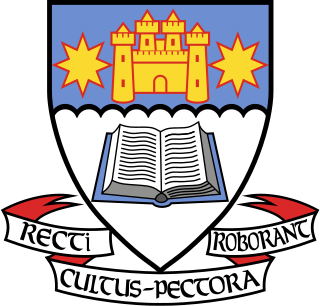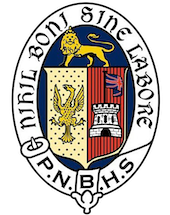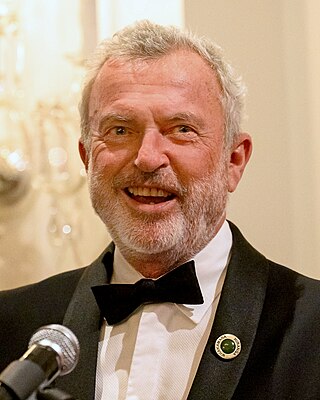Sir Ian Barry Mune is a New Zealand character actor, director, and screenwriter. His screen acting career spans four decades and more than 50 roles. His work as a film director includes hit comedy Came a Hot Friday, an adaptation of classic New Zealand play The End of the Golden Weather, and What Becomes of the Broken Hearted?, the sequel to Once Were Warriors.

Roger Lindsey Donaldson is an Australian and New Zealand film director, screenwriter, and producer. His 1977 debut film, Sleeping Dogs, is considered landmark work of New Zealand cinema, as one of the country’s first films to attract large-scale critical and commercial success. He has subsequently directed 17 feature films, working in Hollywood and the United Kingdom, as well as his native country.

Otago Boys' High School (OBHS) is a secondary school in Dunedin, New Zealand. It is one of New Zealand's oldest boys' secondary schools. Originally known as Dunedin High School, it was founded on 3 August 1863 and moved to its present site in 1885. The main building was designed by Robert Lawson and is regarded as one of the finest Gothic revival structures in the country. Situated on high ground above central Dunedin it commands excellent views of the city and is a prominent landmark.

New Zealand humour bears some similarities to the body of humour of many other English-speaking countries. There are, however, several regional differences.

Alexander Craig "Alec" Aitken was one of New Zealand's most eminent mathematicians. In a 1935 paper he introduced the concept of generalized least squares, along with now standard vector/matrix notation for the linear regression model. Another influential paper co-authored with his student Harold Silverstone established the lower bound on the variance of an estimator, now known as Cramér–Rao bound. He was elected to the Royal Society of Literature for his World War I memoir, Gallipoli to the Somme.

Palmerston North Boys' High School is a traditional boys school located in Palmerston North, New Zealand.
Gloss is a television drama series in New Zealand that screened from 1987 to 1990. The series was about the lives of the rich, famous and fashionable people involved with a fashion magazine owned by the Redfern family.
Dean Leo Parker was a New Zealand screenwriter, playwright, journalist and political commentator based in Auckland. Known for the screenplay of iconic film Came a Hot Friday which he co-wrote with Ian Mune, the television film Old Scores and recent play Midnight in Moscow and was awarded Laureate of the New Zealand Arts Foundation in 2010.

Anthony Damian Ritchie is a New Zealand composer and academic. He has been a freelance composer accepting commissions for works and in 2018 he became professor of composition at The University of Otago after 18 years of teaching composition. Since 2020 he has been head of Otago's School of Performing Arts, a three-year position. His works number over two hundred, and include symphonies, operas, concertos, choral works, chamber music and solo works.

John Maxwell Cryer, generally known as Max Cryer, was a New Zealand television producer and presenter, radio broadcaster, entertainment producer, singer, cabaret performer and writer.

Sir Nigel John Dermot "Sam" Neill is a New Zealand actor. Neill's career has included leading roles in both dramas and blockbusters. Considered an "international leading man", he has been regarded as one of the most versatile actors of his generation.
Jeremy Paul Axford Commons is a New Zealand opera historian, scholar, impresario and librettist. He is an authority on nineteenth-century Italian opera and has published major works on the composers Gaetano Donizetti and Nicola Vaccaj.
Holly Mathieson is a New Zealand conductor and music academic.
Robert Lord was the first New Zealand professional playwright. He was one of the first New Zealand playwrights to have plays produced abroad since Merton Hodge in the 1930s.
Stuart Hoar is a New Zealand playwright, teacher, novelist, radio dramatist and librettist.

Tecwyn Evans is a New Zealand conductor. He holds a faculty position teaching conducting at the University of Auckland School of Music and in 2018 he was named as Director of Music of Den Jyske Opera.
Beverley Bergen is a New Zealand soprano opera singer and concert performer who was born in Dunedin and began her singing studies while a student at the University of Otago.
Michael Earl Parmenter is a New Zealand choreographer, teacher and dancer of contemporary dance.

George Ian TownFRACP is a New Zealand respiratory scientist and health official. He was appointed the Chief Science Advisor to the New Zealand Ministry of Health in 2019.










